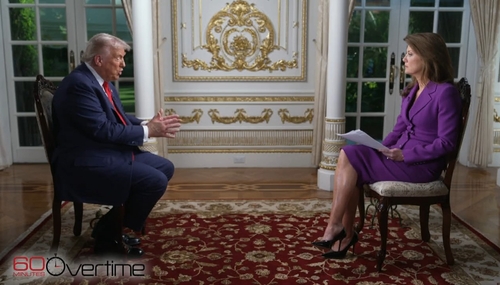We're up to our eyeballs in debt. And, with Christmas coming, it's only going to get worse. Personal debt. Mortgage debt.
“We call it the American nightmare,” homeowner Amy Wood told ABC “World News with Charles Gibson” about housing problems. That phrase sums up more than nine months of network coverage of debt – much of it related to continuing mortgage concerns. Reporters label lenders “unscrupulous,” “deceptive,” and “abusive” and say they “lured” borrowers to financial ruin. Loans receive the same treatment, called “risky,” “bad” and even “toxic.”
Lenders and related companies are blamed for borrowers' debt troubles six times as often as borrowers, according to a new study of network media coverage.
In one of the most memorable examples, ABC's March 2007 series accuses lenders of “taking borrowers down the road to bankruptcy.”
“The Home Wreckers. Locking families out of the American dream by offering mortgages too good to be true,” spins anchor Charles Gibson.
In a few short seconds, Gibson lays international financial concerns in the laps of lenders and absolves borrowers from any responsibility. Just as reporters blame “deceptive” lenders, they portray borrowers as victims nearly two-thirds of the time.
The victim imagery is strong. One
That isn't how journalists see it. The three networks use victims to paint gloomy economic tales in 62 percent of the stories. Two divisions of the
At the same time, the three networks ignore personal responsibility and portray borrowers as helpless victims who have no hand in their own financial failures.
That news agenda has its effect on politics. Months of one-sided coverage encourage the left's populist presidential parade. Major Democratic candidates are all targeting the lending industry for “reform” – D.C.'s code word for bigger government.
“I think a lot of the lenders have really taken advantage of what is a really tough economic situation for many Americans,” said Sen. Hillary Clinton (D-N.Y.) in an Aug. 7, 2007, CNBC interview. She plans to increase regulation of the industry and “set up a $1 billion federal fund to help homeowners avoid foreclosure.”
Her opponents have a similar mindset. Sen. Barack Obama (D-Ill.) also blames “predatory lenders” and says they should be fined and further regulated. And despite his own previous financial ties to the subprime industry, John Edwards is calling “for strong national legislation to regulate mortgage abuses and prohibit predatory homelending.”
Apparently, none of the candidates watches enough network news. If they did, they'd know lenders get criticized for too much lending, but end up on Santa's naughty list for lending too little as well. Reporters blame companies for using “lax” standards and lending too much to subprime borrowers. But when regulators ask for stiffer rules, the media object again. CBS's Anthony Mason warns tighter restrictions could adversely affect the
Predictably, the other networks follow. NBC complains about the scarcity of jumbo loans in an Aug. 16, 2007, segment. Reporter Diana Olick finds a couple upset that they can't get a $600,000 loan after the demise of their lender's firm, “leaving potential home buyers like Terese Berner out in the cold.”
Buyers like the Berners can find some rational debt advice on the networks – just not on the evening news shows. People like financial planner and author Dave Ramsey or Ariel Capital Management's Mellody Hobson bring their savvy counsel to the morning shows. But apparently, no one on the evening news teams watches the early-hour counterparts.
Ramsey, a frequent contributor to CBS's “The Early Show,” talked personal responsibility on the April 3, 2007, broadcast. His advice: try the “b-word, the budget.” “You ought to kind of have a clue in your own life. If you're behind in your bills, you have no money, your income is not great, you're probably not getting the best mortgage,” he told Russ Mitchell.
Ramsey's advice could apply to news as well. Journalists “ought to kind of have a clue” that borrowers and lenders are both responsible for their debts.





